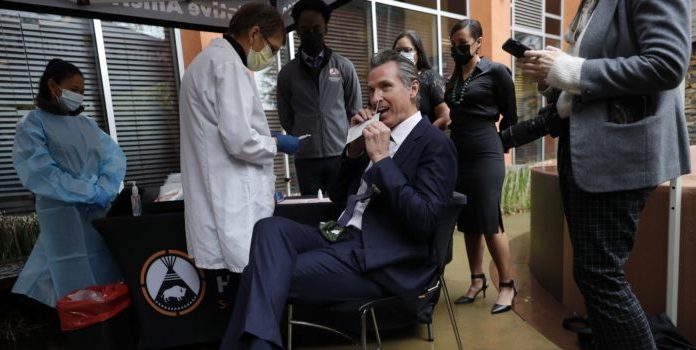(The Center Square) In October 2020, the Michigan Supreme Court stripped Gov. Gretchen Whitmer of the unilateral powers she was using when she declared a state of emergency due to the COVID-19 pandemic.
Whitmer had been using a 1945 law—which was prompted by a three-day race riot in Detroit three years earlier—that had no sunset provision in it and didn’t require approval by the state legislature.
In May 2021, Whitmer told a news agency that if she still had that 1945 state-of-emergency law, she would use those powers, but not for anything related to a pandemic.
Instead, the Democratic governor said she would use it to strike down legislation she opposed that held third graders back from being promoted to fourth grade if they were not proficient in reading. With a GOP-controlled legislature, Whitmer would have no ability to overturn the law.
“I know it’s creating a lot of anxiety. If I had the 1945 emergency powers, I would unilaterally keep that from happening,” Whitmer said according to the Michigan Information & Research Service.
It’s that type of scenario the Federalist Society’s Regulatory Transparency Project warned about in a 2021 report that looked at potential abuses of power with emergency orders.
“The time to consider the scope of emergency powers acts is before the asserted emergency,” the paper warned.
“If an ambitious executive sees an opportunity in an emergency to achieve signature accomplishments that would otherwise remain stubbornly out of reach owing to political realities, it will be too late to foil this ambition once the declaration is made,” it added.
The U.S. Centers for Disease Control and Prevention reported the first case of COVID-19 was in the U.S. on Jan. 20, 2020.
On Dec. 14, 2020, the first person in the U.S. received a vaccine against COVID-19, and as of Aug. 18, 2022, more than 108 million people have had at least one dose of a vaccine against COVID-19.
More than two-and-half years later, at least 12 states are still under a state-of-emergency due to the pandemic. The states are Washington, California, Rhode Island, Colorado, New Mexico, Texas, Kansas, Illinois, West Virginia, New York, Connecticut and Delaware.
All except for Texas and West Virginia are currently run by Democrat governors.
Tracking which states have kept states of emergency can be confusing. For example, Ballotpedia had 21 states being under COVID-19 emergencies in place as of Aug. 1. The National Academy for State Health Policy had 14 states under COVID -19 emergencies as of July 26.
The Center Square’s research found 12 states to be under a state of emergency, but even that requires context. The state of Georgia’s COVID-19 emergency ended April 15, 2022, according to the National Academy for State Health Policy. But Georgia Gov. Brian Kemp issued a supply chain disruption state of emergency that is still in existence. That supply chain order blamed disruptions on COVID-19.
By extending a state of emergency declaration, states receive additional funding. For example, a COVID-19 state of emergency in Connecticut allowed the state to get an additional $748 million for its food assistance program. State officials said it “was vital to offsetting the effects of food insecurity.”
It also gives government extended powers.
In the state of Washington, Gov. Jay Inslee used his emergency powers to mandate anyone “engaged in work with a state agency” to be vaccinated against COVID-19.
In California, the COVID-19 state of emergency is in force, but the state has been scaling back its powers. In February, Gov. Gavin Newsom lifted all but 5% of the COVID-19 related executive order provisions.
The state of North Carolina terminated its COVID-19 state of emergency Aug. 15. The executive order stated it was no longer necessary “with vaccines, treatments, and other tools to combat COVID-19 widely available, and with legislation now providing the flexibility for NCDHHS [North Carolina Department of Health and Human Services] and North Carolina’s health care providers to respond to COVID-19.”
The COVID-19 virus will not be eradicated, according to Anthony Fauci, director of the National Institute of Allergy and Infectious Diseases and the chief medical advisor to the president. Fauci said it’s not clear how the COVID-19 pandemic will play out, according to National Public Radio.
That raises some concerns about how long expanded powers should be allowed.
“There is a real need to put concrete limits on emergency powers because the pandemic restrictions have demonstrated just how much unfettered powers governors wield during a declared emergency,” Luke Wake, an attorney for the Pacific Legal Foundation, told The Center Square an email.

